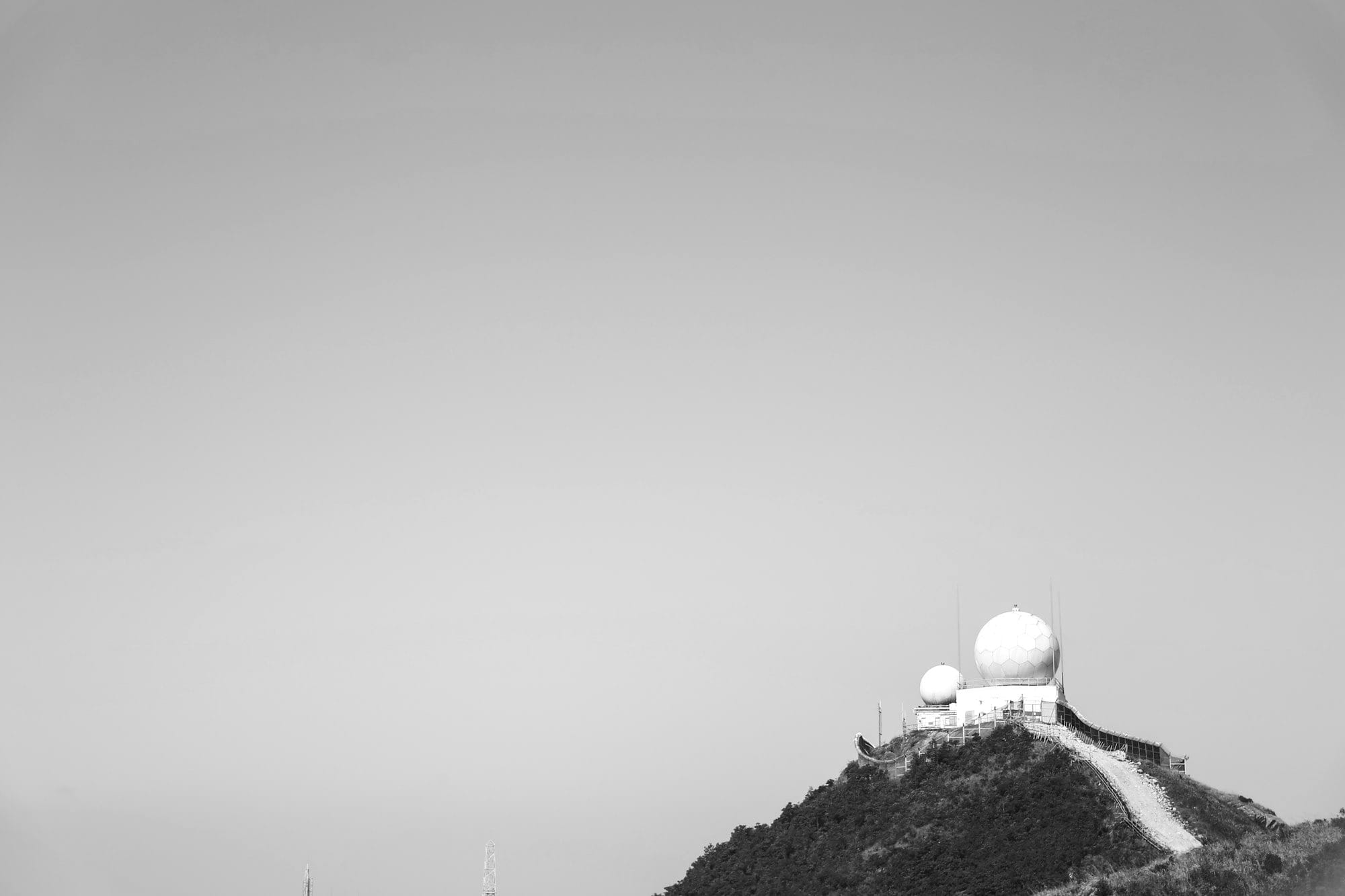Spotting the weak signals of change
Strategic businesses are those that are on a constant lookout for change.

We have repeatedly argued for awareness of (and responses to) the risks and threats that 'change' brings. And we argued for the concomitant need to respond and to innovate if your business is to continue thriving.
But, how much innovation and change is then necessary and how does that impact your strategy?
Additionally, we also now want to clearly state that change not only equals risk and threat. Change also brings opportunity.
Super Size Me?
We will briefly discuss two extreme (fast and slow) levels of impact.
It is often easy to fool yourself into believing that your industry is towards the 'slow' side of the continuum. Some of the feedback (from the investment industry) to this post of ours, for example, points that way.
It is 2024 and (fast) change is everywhere, so, nope, it is probably not the case that change in your industry is much slower than is the case in others.
We will also show how the massive changes in one industry can (perhaps unexpectedly - and even dramatically) spill over into other industries. Your vigilance must be wide.
Hourly changes
In some industries big sets of changes sometimes happen in the same hour.
One of these breakneck-pace-movers is the biotechnology industry. Here advances such as gene editing, which includes RLR, CAS-Clover, ZFN and (the most well-known one, CRISPR) hold the promise for 'fixing' genetic anomalies such as cystic fibrosis. Therapies for certain types of heart diseases and autoimmune disorders, as well as Alzheimer's disease may also be on the cards.
Walter Isaacson's book "Code Breaker" is a great account of the ground-breaking work of Nobel Prize winner Jennifer Doudna - and also of the work of her colleagues and rivals. The book also outlines how the decades of scientific advances, created by people such as Doudna, then led to humanity having been able to overcome the Covid scourge through vaccines. People such as Ugur Sahin and Oezlem Tureci could build on top of these decades-long advances and were thus able to create their Covid-19 vaccines within days and weeks. Conspiracy-theory believers who question such speeds of vaccine creation are ignorant (or maliciously dismissive) of these (long-history) facts. Knowledge of messenger-RNA's existence (and its workings) became available in the 1950s and it was already in my high-school biology books in the 1970s. In this industry, the (often-hourly) changes, together with the decades-long progress-upon-progress make 'anything' possible.
We will come back to biology again below.
Another breakneck-speed industry is the AI-domain. At the time of writing this (Sat 02 March 2023), all of the following is happening simultaneously (with hour-by-hour updates becoming available): (a) The 9-month-old French startup Mistral has attracted funding from Microsoft, and their Mistral-Large product already ranks second only to GPT-4. (b) Elon Musk filed a lawsuit against Open-AI (for abandoning their founding agreement), and (c) Open-AI CEO Sam Altman is under review by the American Securities and Exchange Commission.
The impacts here? Bloomberg, for example, says that "Bankers Will See Three-Quarters of the Workday Transformed by AI"
Tortoise-paced change
Ok, we will not dwell on the curious fact that tortoises move at relatively low speeds despite them having, what appears to be, very aerodynamic bodies. Let's rather move (ok, let's use the word) speedily ahead.
But, yes, sometimes there really is not much that can impact certain industries and/or products. There are many examples, but let's just mention the good old Bic pen. This product's almost-perfect balance of efficiency and affordability has allowed it to survive massive changes such as people moving en-masse from writing on paper to typing on keyboards and screens and/or speaking over IP-connections (VoIP). For Bic, there really has never been a need for big changes (or should we rather say Bic changes). Here is a short history of the Bic.
In certain cases it might make sense for a business to ignore many of the changes and only react to some of those. A personal favourite here is Cape Town's Labia movie theatre. The Labia became a cult-destination to many of us who visit it frequently - and it did so by never changing its essence while (all around it) massive changes such as Netflix, Showmax, Covid-lockdowns and the move from celluloid analogue reels to digital distribution forced some out-of-sight-of-customers changes. But, this movie house also strategically resisted many other changes.
The Labia seems to truly understands its customers - and what those customers really want. It is that deep customer-first approach that allows certain businesses to survive (and even thrive) when they may appear to be 'dinosaurs' (to those who are not their customers). It is also that deep customer insight that had the Labia move (to some extent) away from only arthouse-type movies to a mix of mainstream and art. And it is that awareness that helped them survive - in an impossibly hostile environment - through fundraising by their customers. It's certainly not often that this happens to businesses; customers ensuring your survival through extraordinary interventions.
So, yes, reinvention, but customer-first reinvention: slower and much less than what others may have expected.
Threats Where None Were Expected
The lyrics of Bob Dylan's song "Day of the Locusts" contain the words "The man standing next to me, his head was exploding - Well, I was praying the pieces wouldn’t fall on me".
This type of view is often the case when some 'safe' industries look at other industries 'under siege'. And there is also then often the addendum of "... and I was certain that my head would not explode too."
If there ever were industries that one could call 'safe', the junk-food (or not-entirely-healthy-food) industry would be one of them. Once you have made it to the top of that pile, there is perhaps less to worry about (from the perspective of change) than might be the case for many other industries.
Why? The biology of your customers shuttle them back to you, repeatedly. In a sense we are eating pre-digested food when we eat these foods. Our bodies don't really register that we have eaten, so they ask us to provide them with more.
But, then huge changes may happen - as is the case now.
One Industry Affecting Another
The Danish healthcare/pharmaceutical company (see the biotechnology discussion above), Novo Nordisk, created antidiabetic/anti-obesity medications such as Wegovy, Ozempic and Rybelsus.
The company has been so successful that it is single-handedly reshaping Denmark's economy. Shakespeare's "something rotten in the state of Denmark" may, in fact, have been the case if Novo Nordisk weren't there.
These drugs, first approved for use in 2017, are now apparently beginning to have a significant impact on the questionable-food industries.
From the link above, we have the following sentences, for example:
"Novo Nordisk CEO Lars Fruergaard Jorgensen says he's received calls from other execs asking advice about Ozempic, Wegovy and other weight loss drugs"
"Lars Fruergaard Jorgensen, the CEO of Ozempic and Wegovy maker Novo Nordisk, says that chief executives at food companies are calling him for advice regarding the diabetes and weight loss drugs."
"A couple of CEOs from, say, food companies have been calling me,” Jorgensen told Bloomberg. “They are scared about it."
"“I say you can never close your eyes on any development that is happening,” Unilever Chief Executive Officer Hein Schumacher told Bloomberg Television on Thursday, adding that he himself had not called Jorgensen"
Locally, moneyweb.co.za has also reported on this. And at this link we also find that some CEOs sees this as an opportunity.
"French company Danone, which makes popular yogurt brands, also sees GLP-1 drugs boosting business. People taking drugs like Ozempic and Wegovy are “looking for products with high protein and low fat content,” Danone’s chief financial officer Juergen Esser said on a call last year."
Back to you
So, yes, change is inevitable. It is the duty of business leaders to stay up to date with these changes and to create the correct tactical responses and (more importantly) the correct strategic responses.
When we speak to our clients, we sometimes find that the impacts of change is over-analysed from a threat perspective or risk perspective.
It is, however, the companies that consistently find the opportunities through the change that are the ones that truly thrive. When new excavations open up huge holes in the ground beneath our feet, defensive work may often be necessary. But let's also see if we can find those diamonds that may then be unearthed.

